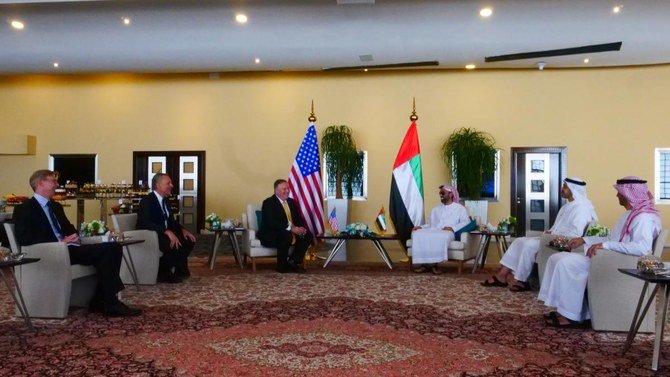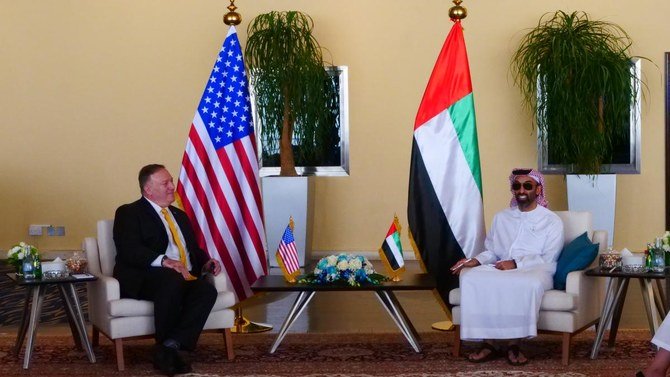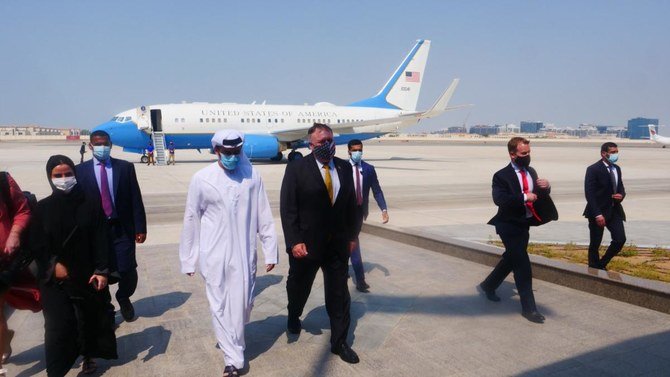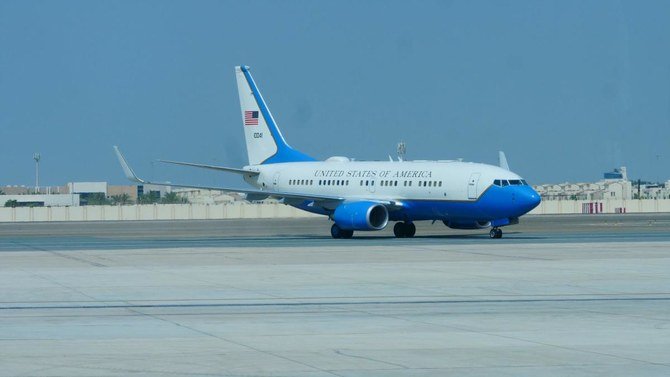







DUBAI: US Secretary of State Mike Pompeo discussed the Libyan conflict and countering Iranian regional influence with his Emirati counterpart during a brief visit to the United Arab Emirates on Wednesday.
The visit followed a US brokered-accord this month, which saw the UAE become just the third Arab state to agree to establish full diplomatic ties with Israel.
Pompeo, who this week also visited Jerusalem, Sudan and Bahrain, sought to build on the momentum of the agreement for regional peace, he said in a tweet after arriving in the UAE.
Thanks to the Emirati people for their wonderful hospitality. The United Arab Emirates made history with the Abraham Accords and now we have to keep the momentum going. It has been a productive journey to advance peace and prosperity.
— Secretary Pompeo (@SecPompeo) August 26, 2020
Pompeo and UAE Foreign Minister Sheikh Abdullah bin Zayed Al-Nahyan spoke about support for “de-escalation and a lasting cease-fire in Libya, Gulf unity and countering Iran’s malign influence in the region,” the state department said.
The United States, UAE and Israel see Iran as the main threat to the Middle East, though the UAE has said forging diplomatic ties with Israel was not directed at Tehran.
Top UAE and Israeli defense officials pledged defense cooperation this week, but this came amid Israeli dissent at the prospect that the deal could grant the Gulf power access to advanced weaponry previously denied to it, such as F-35 stealth fighter jets.
Excited to arrive in the United Arab Emirates and congratulate the Emirati people on the historic Abraham Accords– the most significant step toward peace in the Middle East in over 25 years. Hopeful we will build on this momentum towards regional peace. pic.twitter.com/WdICQ9V8kN
— Secretary Pompeo (@SecPompeo) August 26, 2020
A senior US State Department official said on Wednesday talks between Israel and the UAE were continuing and there was no backtracking.
UAE’s state news agency WAM on Wednesday cited Morgan Ortagus, spokeswoman for the US State Department, saying there were “incredibly positive conversations going on” between the United States, Israel and UAE with regard to selling F-35 warplanes to the Gulf country.
UAE National Security Adviser Sheikh Tahnoun bin Zayed Al-Nahyan also attended the meeting in Abu Dhabi, the State Department said.
Reuters
Met UAE Foreign Minister Sheikh Abdullah bin Zayed Al Nahyan and National Security Advisor Sheikh Tahnoun bin Zayed Al Nahyan to congratulate them on the Abraham Accords and discuss building regional peace and stability, including supporting a ceasefire in Libya and Gulf unity. pic.twitter.com/BeR1qO52yS
— Secretary Pompeo (@SecPompeo) August 26, 2020